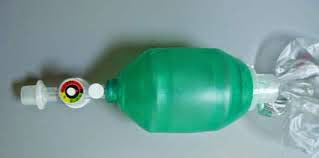
Image credit.
The FDA (Food and Drug Administration) has been busy with recalls and label changes this past week for EMS week.
Labetalol Hydrochloride Injection, USP, 100 mg/20 mL (5 mg/mL) 20 mL Multidose Vial, NDC 0409-2267-20, Lot 36-225-DD, Expiration 12/01/2015.[1]
This is worse than the usual particulate matter. Since this is often used to lower the blood pressure of patients with bad things happening in the brain or the heart, a bit of particulate matter could be the coup de grâce.
The embedded particulate was identified as stainless steel and the floating particulate as iron oxide. To date, Hospira has not received reports of any adverse events associated with this issue for this lot. Hospira has attributed the embedded particulate to a supplier’s glass defect.[1]
Dobutamine is another medication with a recall that is given to some of our less stable patients.
In general, injected particulate matter may result acutely in local inflammation, phlebitis, and/or low level allergic response through mechanical disruption of tissue or immune response to the particulate. Small capillaries may become obstructed.[2]
Dobutamine is supposed to improve circulation through small capillaries. 😳
Suppose you would like to ventilate a patient with a BVM (Bag Valve Mask) resuscitator (with the mask or connected to an endotracheal tube, a tracheostomy tube, and LMA, a King airway, . . . ). Some of them might not work properly.
voluntary medical device removal of a limited number of Ventlab™ Resuscitator Bags after becoming aware of complaints regarding a sticking duckbill valve that resulted in the resuscitation bags delivering no air through the patient valve, to the patient. The valves may stick due to incomplete curing during the manufacturing process. Resuscitation bags affected may not function properly and may result in a delay of treatment and life threatening health consequences that include hypoxia and hypoventilation.[3]
A sticking duckbill valve?
At 25 seconds of this video, there is a good view of the duckbill valve from the patient end.
There has been one report of injury requiring medical intervention due to the lack of a functional resuscitation bag and 31 reports of a delay in oxygenation due to the requirement to utilize a 2nd or 3rd device. The FDA has been notified of this voluntary action by Ventlab, LLC.[3]
If you are using injectable risperidone (Risperdal), watch out for anaphylaxis. It is rare, but it can make a bad situation worse and you probably were not injecting risperidone because the patient is being helpful.
6.8 Postmarketing Experience [for Risperdal Consta ]
added: Very rarely, cases of anaphylactic reaction after injection with RISPERDAL CONSTA have been reported during postmarketing experience in patients who have previously tolerated oral risperidone.[4]
One of the new anticoagulants does not appear to increase the rate of stroke or heart attack (compared to warfarin [Coumadin]). Yay!
But it does appear to increase the rate of GI bleed (GastroIntestinal bleed) (compared to warfarin [Coumadin]). Remember to pay attention to any signs of changes in bowel habits of signs of anemia in patients taking the newer anticoagulants.
The new study included information from more than 134,000 Medicare patients, 65 years or older, and found that among new users of blood-thinning drugs, Pradaxa was associated with a lower risk of clot-related strokes, bleeding in the brain, and death, than warfarin. The study also found an increased risk of major gastrointestinal bleeding with use of Pradaxa as compared to warfarin. The MI risk was similar for the two drugs.[5]
NTG (NiTroGlycerin – GTN GlycerylTriNitrate in Commonwealth countries) no longer has the following precaution –
PRECAUTIONS
Drug Interactions
deleted: “Patients receiving antihypertensive…..concomitantly”[6]
That was the good news.
NTG is still discouraged if a patient is taking a PDE-5 (PhosphoDiEsterase-5) inhibitor.
–
Footnotes:
–
[1] Hospira Announces Voluntary Nationwide Recall Of One Lot Of Labetalol Hydrochloride Injection, USP, 100 MG/20 ML (5MG/ML), 20 ML, Multidose Vial, Due To Visible Particulates
May 16, 2014
Recalls, Market Withdrawals, & Safety Alerts
FDA
Recall
–
[2] Hospira Announces Voluntary Nationwide Recall Of One Lot Of Dobutamine Injection, USP, 250 MG, 20 ML, Single-Dose Fliptop Vial, Due To Visible Particulates
May 16, 2014
Recalls, Market Withdrawals, & Safety Alerts
FDA
Recall
–
[3] Ventlab, LLC. Issues a Nationwide Recall of Ventlab Resuscitator Bags Due to Possible Health Risk
May 16, 2014
Recalls, Market Withdrawals, & Safety Alerts
FDA
Recall
–
[4] Risperdal (risperidone) tablets, oral solution, Risperdal M-Tab (risperidone) orally disintegrating tablets, and Risperdal Consta (risperidone) long-acting injection.
Page Last Updated: 05/16/2014
Safety information
FDA
Label change
–
[5] Pradaxa (dabigatran): Drug Safety Communication – Lower Risk for Stroke and Death, but Higher Risk for GI Bleeding Compared to Warfarin
[Posted 05/13/2014]
Safety information
FDA
Label change
–
[6] Nitrostat (nitroglycerin, USP) Sublingual Tablets
Detailed View: Safety Labeling Changes Approved By FDA Center for Drug Evaluation and Research (CDER)
Page Last Updated: 05/16/2014
Safety information
FDA
Label change
.










Subscribe to RogueMedic.com